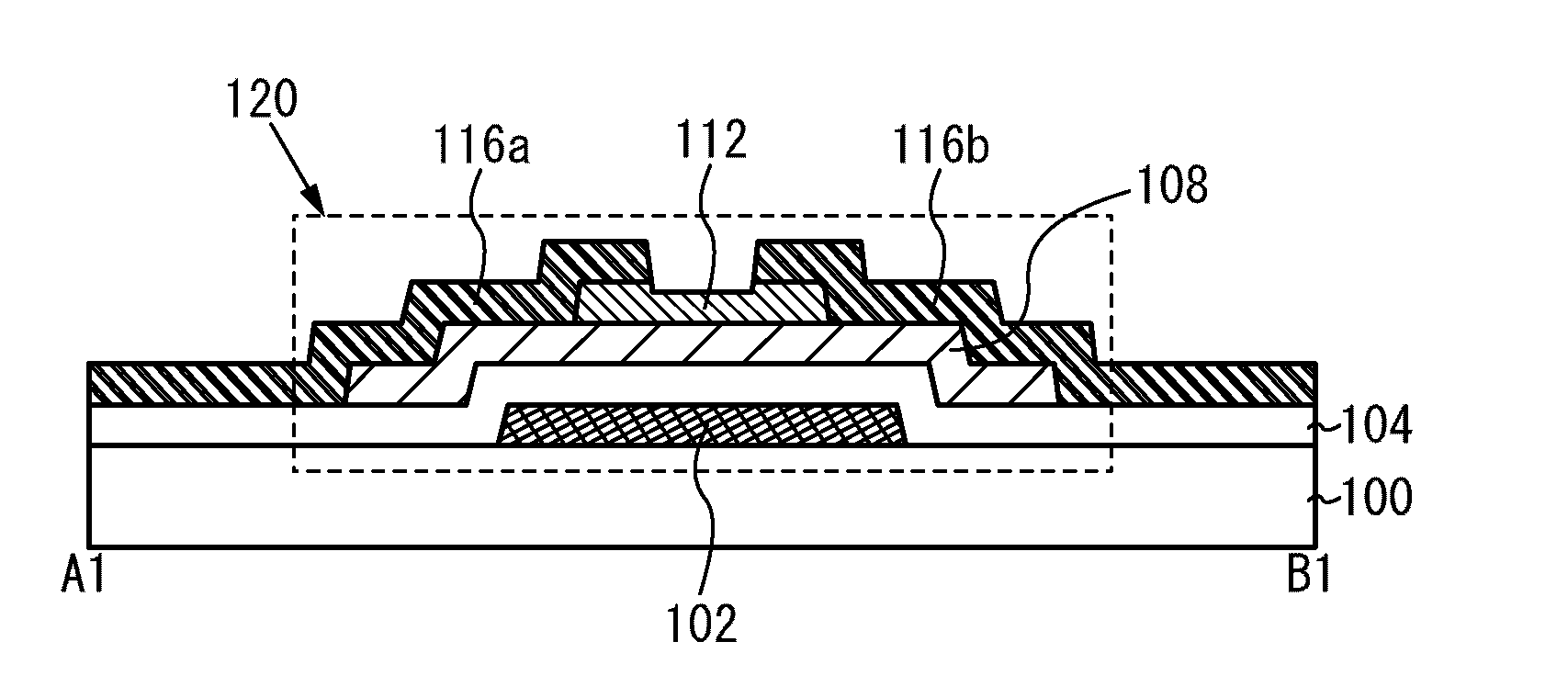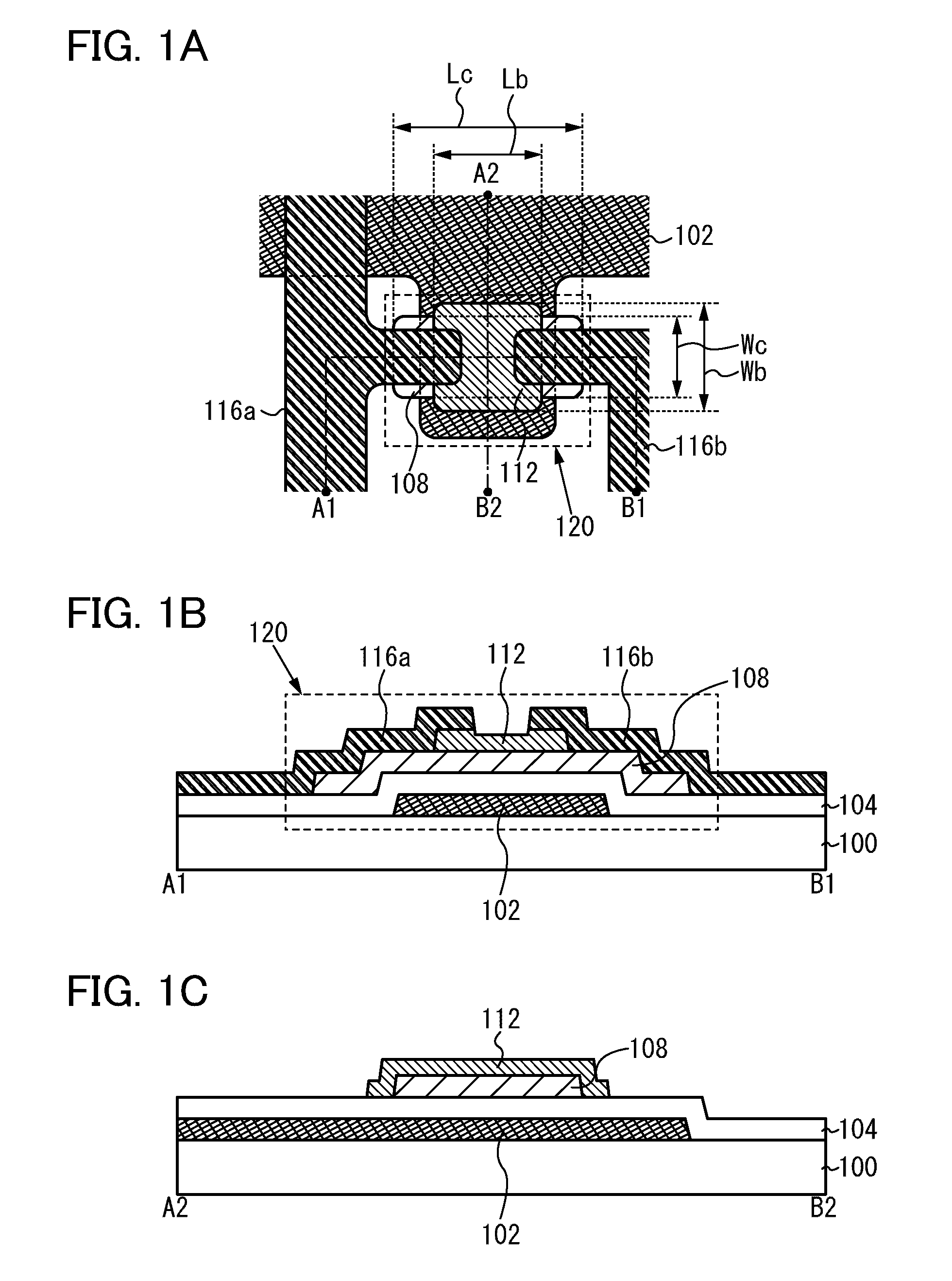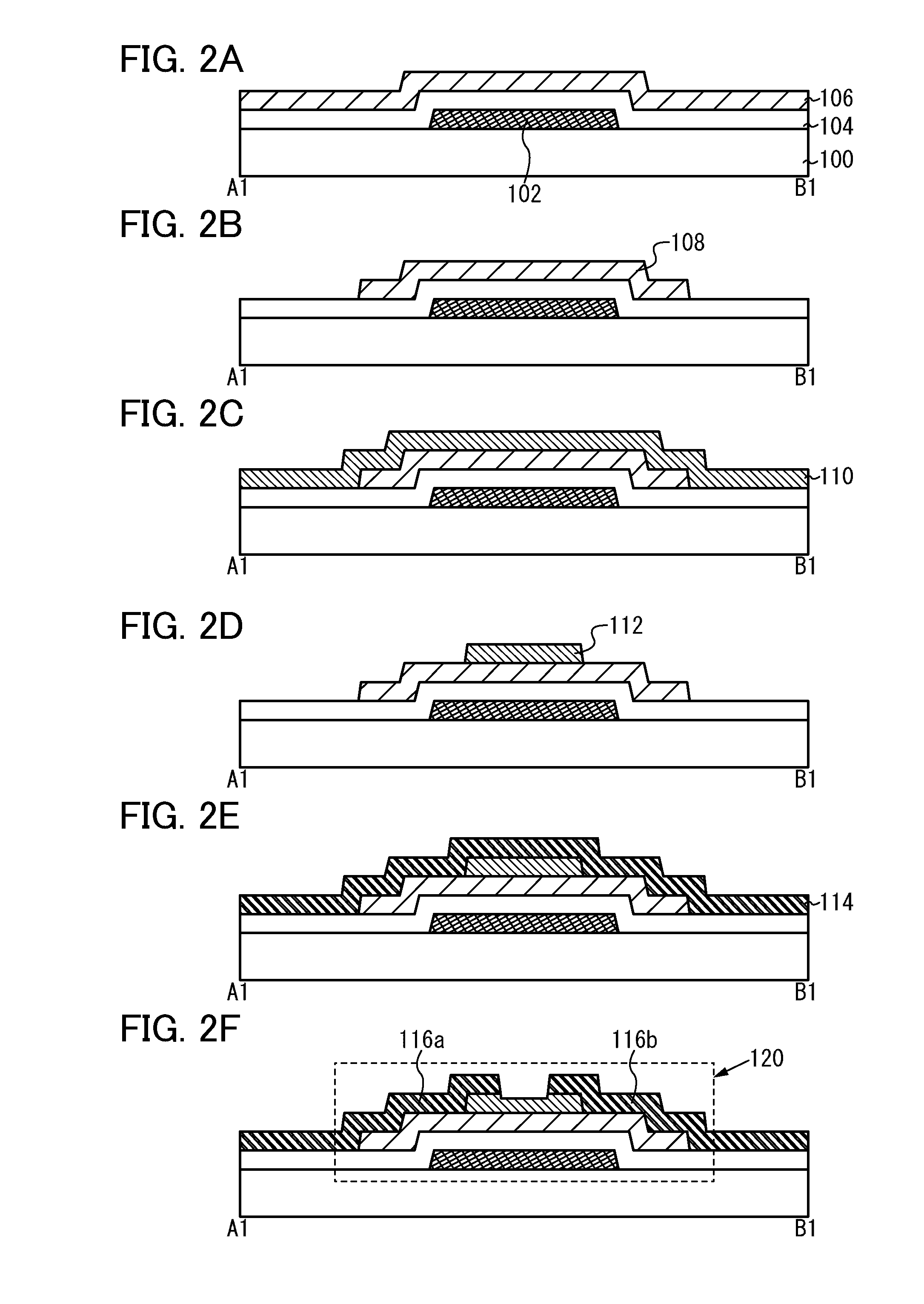Semiconductor device including a transistor, and manufacturing method of the semiconductor device
a semiconductor device and semiconductor technology, applied in the direction of transistors, electroluminescent light sources, electric lighting sources, etc., can solve the problems of deterioration of electrical characteristics of elements, problems of variation, and likely variation of semiconductor characteristics, so as to suppress the deterioration of electrical characteristics of transistors
- Summary
- Abstract
- Description
- Claims
- Application Information
AI Technical Summary
Benefits of technology
Problems solved by technology
Method used
Image
Examples
embodiment 1
[0068]In this embodiment, an example of a structure of a transistor included in a semiconductor device will be described with reference to drawings.
[0069]A transistor 120 illustrated in FIGS. 1A to 1C includes a gate (including a gate wiring and a gate electrode (hereinafter referred to as a “gate electrode 102”)) provided over a substrate 100, a gate insulating layer 104 provided over the gate electrode 102, an oxide semiconductor layer 108 provided over the gate insulating layer 104, a p-type silicon layer 112 provided over and in contact with a surface of the oxide semiconductor layer 108, and a source (including a source wiring and a source electrode (hereinafter referred to as a “source electrode layer 116a”)) and a drain (including a drain wiring and a drain electrode (also referred to as a “drain electrode layer 116b”)) which are electrically connected to the oxide semiconductor layer 108 (see FIGS. 1A to 1C).
[0070]FIG. 1A is a top view, FIG. 1B is a cross-sectional view take...
embodiment 2
[0160]In this embodiment, a structure and a manufacturing method of a transistor which is different from that of Embodiment 1 will be described with reference to drawings.
[0161]First, the manufacturing method of the transistor will be described with reference to FIGS. 5A to 5E. Note that the manufacturing process (such as applicable materials) described in this embodiment is in common with that of Embodiment 1 in many points. Thus, description of the common points is omitted below and only points different from those of Embodiment 1 will be described in detail.
[0162]First, the gate electrode 102 is formed over the substrate 100, and then the gate insulating layer 104 is formed over the gate electrode 102. Then, the oxide semiconductor layer 106 and the p-type silicon layer 110 are sequentially formed to be stacked over the gate insulating layer 104, and a resist mask 171 is selectively formed (see FIG. 5A). It is preferable that layers of from the gate insulating layer 104 to the p-...
embodiment 3
[0174]In this embodiment, a transistor which is different from the transistors in Embodiments 1 and 2 and a manufacturing method thereof will be described with reference to drawings. Note that the manufacturing process (such as applicable materials) described in this embodiment is in common with that of Embodiment 1 in many points. Thus, description of the common points is omitted below and only points different from those of Embodiment 1 will be described in detail.
[0175]A transistor 140 illustrated in FIGS. 7A and 7B includes the gate electrode 102 provided over the substrate 100, the gate insulating layer 104 provided over the gate electrode 102, the oxide semiconductor layer 108 provided over the gate insulating layer 104, the p-type silicon layer 112 provided over and in contact with the surface of the oxide semiconductor layer 108, and the source electrode layer 116a and the drain electrode layer 116b provided over and in contact with the surface of the oxide semiconductor lay...
PUM
 Login to View More
Login to View More Abstract
Description
Claims
Application Information
 Login to View More
Login to View More - R&D
- Intellectual Property
- Life Sciences
- Materials
- Tech Scout
- Unparalleled Data Quality
- Higher Quality Content
- 60% Fewer Hallucinations
Browse by: Latest US Patents, China's latest patents, Technical Efficacy Thesaurus, Application Domain, Technology Topic, Popular Technical Reports.
© 2025 PatSnap. All rights reserved.Legal|Privacy policy|Modern Slavery Act Transparency Statement|Sitemap|About US| Contact US: help@patsnap.com



